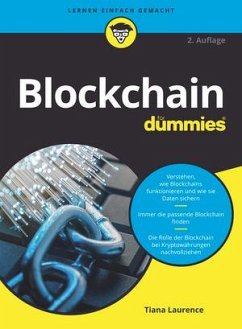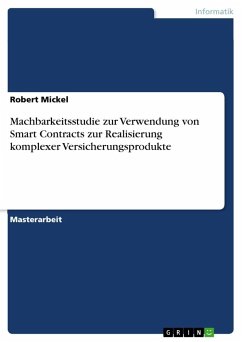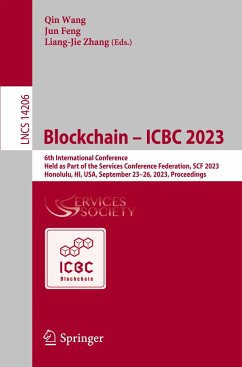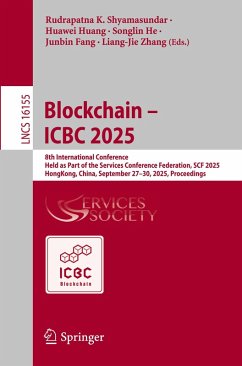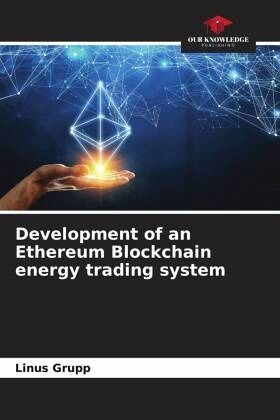
Development of an Ethereum Blockchain energy trading system
Versandkostenfrei!
Versandfertig in 6-10 Tagen
36,99 €
inkl. MwSt.

PAYBACK Punkte
18 °P sammeln!
Due to climate change, Germany's energy supply is facing major changes. The goal is to achieve the most renewable generation possible while at the same time maintaining security of supply. The fluctuating generation from increasingly renewable plants must be countered with flexibility in the electricity system. The potential of blockchain technology, which could take over energy trading, is also being investigated. As this technology is relatively young, there is still a need for optimisation. The Ethereum blockchain enables the execution of programmes - so-called smart contracts. The problem ...
Due to climate change, Germany's energy supply is facing major changes. The goal is to achieve the most renewable generation possible while at the same time maintaining security of supply. The fluctuating generation from increasingly renewable plants must be countered with flexibility in the electricity system. The potential of blockchain technology, which could take over energy trading, is also being investigated. As this technology is relatively young, there is still a need for optimisation. The Ethereum blockchain enables the execution of programmes - so-called smart contracts. The problem is that these programmes are immutable in the blockchain and thus function extensions or bug fixes are not easily possible. This book deals with the development and implementation of a design pattern for updating interacting smart contracts. Different update mechanisms are presented. One of them is selected and a system is designed according to its principle. Finally, the design pattern is critically examined and potential adaptations are discussed.





